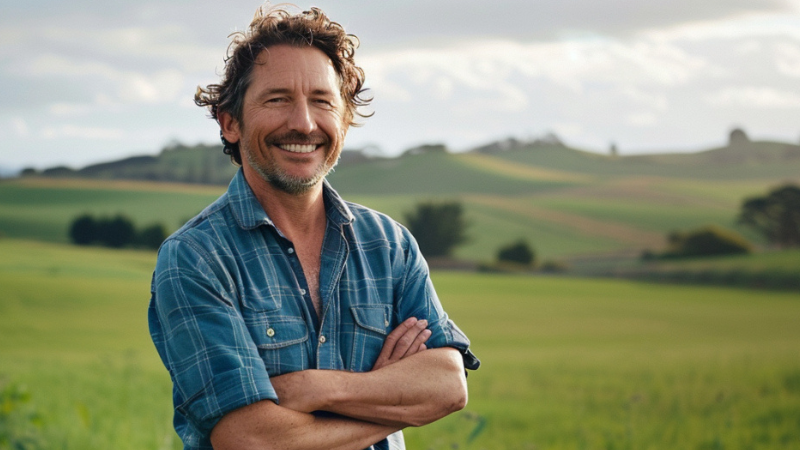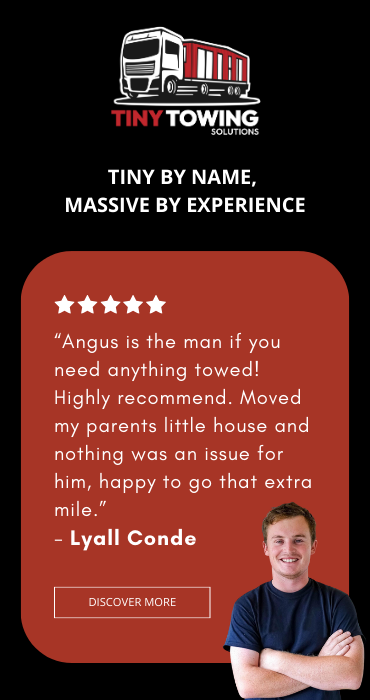No second job. no guests, no cleaning, no app reviews required.
We’re all tired. The economy’s acting up. Interest rates are doing whatever they like, council’s keep hiking rates. Grocery prices are outrageous (when did cheese become a luxury item?), and every second ad is telling you to start a side hustle.
Knitting for Etsy. Dropshipping. Becoming an Airbnb host with monogrammed pillowcases and a welcome basket of local jams. Exhausting, isn’t it?
But what if (and hear us out) you didn’t need another job? What if the land you already own could be the thing that saves you?
Welcome to the side hustle no one’s shouting about (but probably should be): leasing a bit of your land to tiny house owners.
No cleaning. No hosting. No customer service voice. Just steady, low-effort income that doesn’t require frantically cleaning before your next guests arrive.
You know the rural dream. The space, peace, maybe a goat named Neil. But with it comes the dark side: rising mortgage payments, maintenance, rates, and the creeping sense that your land is costing more than it’s giving.
That’s the reality for loads of rural Kiwis right now. But some have quietly cracked the code: they’re leasing small sections of their property to people living in tiny homes or off-grid setups. And the results? Surprisingly brilliant.
Simon lives in Hawke’s Bay and was, in his words, “one rates bill away from tears.” He’d worked hard to buy his land, but financially, it was tight.
Then he started leasing spots to three tiny house owners.
“They’re self-contained, they mind their own business, and now half my mortgage is covered,” he says. “I didn’t have to build anything or clean anything or learn how to be a ‘host.’ I just said, ‘Here’s the land, here are the rules, let’s be decent to each other.’ And it works.”
Let’s be clear, this is not Airbnb. You’re not on call. You’re not washing sheets. You’re not fielding messages at 11pm about how to turn the heat pump on. Tiny house owners bring their own homes. They’re usually fully set up with power, water tanks, and wanting a mutual healthy respect for each others space.
You’re simply leasing them a patch of land, and possibly access to power or water if you’ve got it to offer.
Some landowners charge $100 to $300 a week. That’s money in the bank without the drama of managing another property or pretending you love meeting new people every couple of days.
But Is It Legal? Safe? Sensible? Yes, with a bit of planning.
-
Zoning: Councils are all a bit different, so check your property’s zone on the district plan. Some are tiny-house-friendly, others not so much.
-
Access: Can your tenant get to their site without doing an obstacle course through your garden?
-
Utilities: Will you supply power or water? Or are they self-sufficient?
You’ll also want a proper lease. Tiny House Hub has a solid template you can download, or you can go to a lawyer if you like things extra tidy.
Set expectations clearly: rent, notice period, pets, visitors, parking, the lot. Think of it as a “flatmate agreement for paddocks.”
Some people build communal veggie patches. Others wave politely and keep to themselves. Both are valid. The key is knowing what you want and being upfront about it.
Simon puts it perfectly: “You’re sharing space, maybe even your driveway. So you need to know if you’re offering a paddock, or creating a community.”
Good fences make good neighbours. So do good boundaries, both practical and personal.
In a time when people are turning to side hustles that barely break even (or worse, just burn them out), leasing land is different. It’s not another job. It’s not more stress. It’s using what you already have to make your life easier.
And right now, easing the pressure is what most of us need. Not scaling. Not hustling. Just breathing a little easier.
As Simon says (and honestly, we’re thinking of putting this on a mug):
“It’s not just about the money. It’s about living with less stress and helping someone else do the same.”
If you’ve got land, and you’re feeling the pinch, this might just be your way through it. No apps, no start-up capital, no social media strategy required.
Just a paddock. And a plan.


